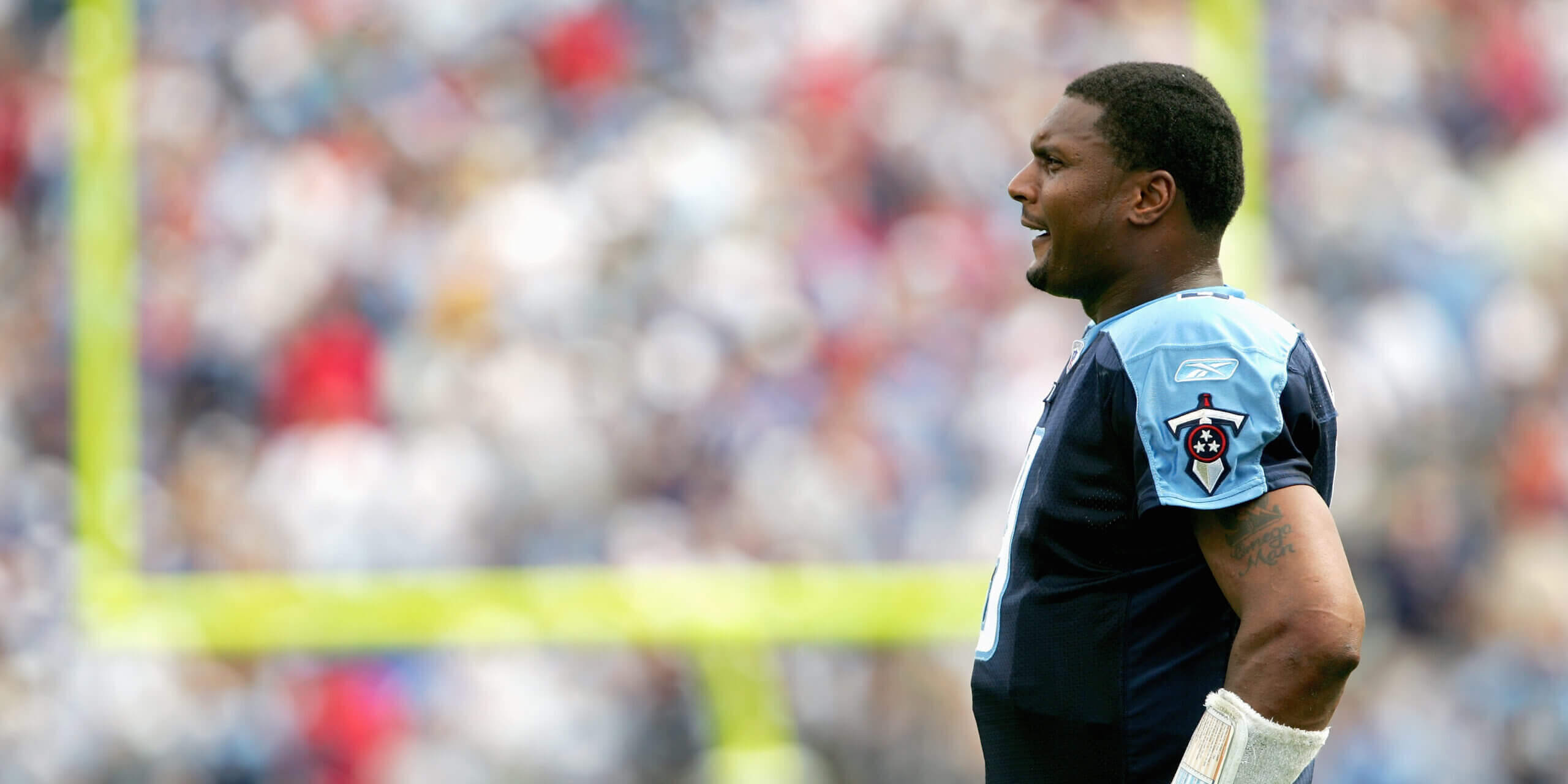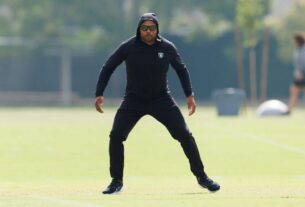Steve McNair’s football story has been told plenty. Fans know how he emerged from being a star quarterback at HBCU Alcorn State to becoming a Heisman Trophy finalist and, eventually, the No. 3 pick in the 1995 NFL Draft by the Houston Oilers.
He led the Tennessee Titans to Super Bowl XXXIV. He was the 2003 NFL co-MVP with Peyton Manning and was regarded as one of the toughest quarterbacks to play because of his physical style over 13 seasons with the Oilers/Titans and Baltimore Ravens. His No. 9 was retired by the Titans in 2019, and he was inducted into the Black College Football Hall of Fame (2012) and the College Football Hall of Fame (2020).
But the questions surrounding McNair’s death have persisted for more than 15 years.
“Untold: The Murder of Air McNair” is the new Netflix documentary that seeks to tell the story of how he became an NFL star and fan favorite while delving into the circumstances surrounding his murder on July 4, 2009, in Nashville.
The documentary, however, doesn’t offer much aside from what’s already been told.

A 1998 photo of Steve McNair as a member of the Tennessee Oilers. (Larry McCormack / The Tennessean via Imagn)
There is the official story from authorities: McNair was shot and killed by his mistress, 20-year-old Sahel “Jenni” Kazemi, who took her own life next to him, allegedly amid financial concerns and a realization that the 36-year-old McNair was having more than one extramarital affair.
There are mentions of other theories, namely those from private investigator Vincent Hill, a former Nashville police officer who wrote a book noting problems he saw in the investigation. Also addressed in the documentary are questions about Adrian Gilliam, the convicted felon who was found to have sold Kazemi the gun used in the crime.
McNair’s friend, Wayne Neely, discovered the bodies and is shown in the film offering detectives cash while being interviewed, but there’s no explanation as to why a man who was a person of interest is offering police money.
McNair’s good friend and Alcorn State teammate, Robert Gaddy, discussed a $13,000 dispute involving a business venture with McNair that had them on shaky terms, but he expressed regret as to whether that kept him from being in position to help McNair. Neely called Gaddy from the crime scene, and it was Gaddy who called the police.
One of the film’s more gripping moments is Gaddy discussing the weight of living amid conspiracies that suggested he had something to do with McNair’s death and not wanting to say more out of respect for McNair’s family, which includes his widow, Mechelle, and his four children.
Mechelle is not interviewed in the film.
In the documentary, McNair’s coach in Tennessee, Jeff Fisher, expressed that some things about McNair’s death don’t add up, but he didn’t want to speculate about what might have led to his death.
The film is less than an hour and there was an opportunity to delve more into McNair’s post-football story. But hearing so much about McNair the football player felt out of place at times. You can’t tell his story without discussing his NFL career, but what Fisher said to McNair after losing the Super Bowl seemed less important than the conversations they might have had after his career.
What was McNair’s mindset about life after football? Are there lessons to be learned?
Kazemi was believed to have found out about another woman, Leah Ignagni, who McNair also saw in the days before his death. A tape of Ignagni’s interview with police was played during the film where she states she’d only been seeing McNair for a short time and was just having fun with him. Learning more about this, however, doesn’t tell us about McNair and his life after football.
Mechelle has spoken candidly in the past, saying she knew about other people involved with her husband but did not know Kazemi.
It’s obvious McNair was beloved. Even Kazemi’s ex-boyfriend, Keith Norfleet, admitted in the documentary McNair was his favorite player growing up. He discussed the awkwardness of breaking up with Kazemi only to see her in a relationship with his favorite football player.
But there isn’t more as to why McNair was beloved beyond the field, which might have helped to explain why he stayed connected to Nashville after retiring following the 2007 season. I learned more about Norfleet than I did about McNair or Kazemi.
Perhaps it was best to let McNair’s football legacy stand on its own rather than rehash how he died.
(Top photo: Doug Pensinger / Getty Images)





